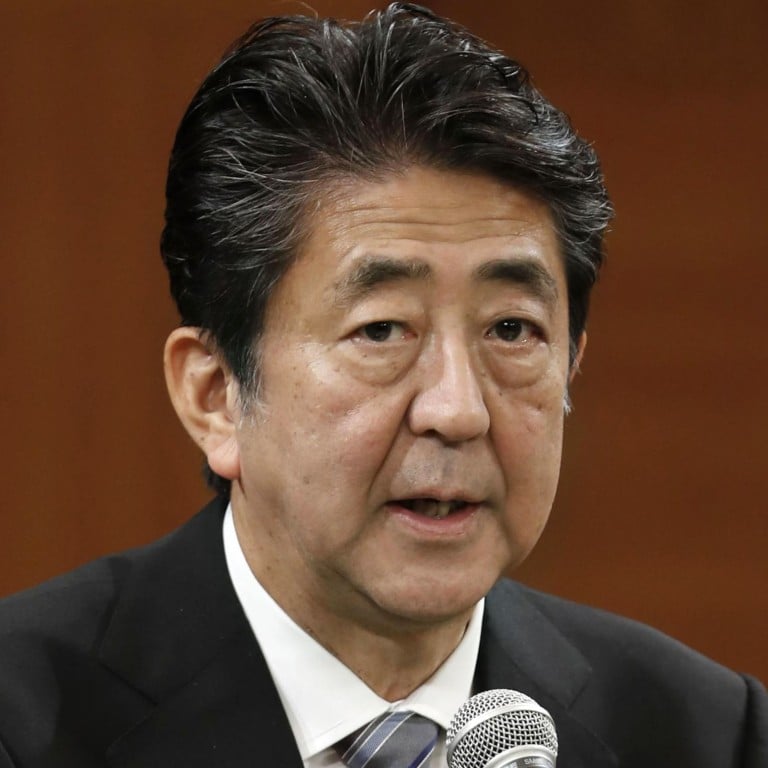
In Philippines, stateless descendants of soldiers long for Japanese citizenship
- A survey has found that there are 3,810 Nikkeijin in the Philippines, of whom 1,069 are still alive and considered stateless
- Japan started conducting citizenship interviews in 2015 after Nikkeijin organisations made an appeal to Prime Minister Shinzo Abe in 2015
Representatives from the Japanese Embassy and from a national federation of Filipino-Japanese descendants met seven Nikkeijin to ascertain links with their Japanese fathers who were separated from them immediately before or during World War II.
Twenty-two of the 47 are still alive, according to Norihiro Inomata of the Philippine Nikkei-Jin Legal Support Center, which is spearheading efforts to help the descendants acquire Japanese citizenship, in cooperation with the Nippon Foundation.
My remaining time here on earth is very short. So if I have to rest in peace, I need to see where my father came from.
The group’s latest survey has found that there are 3,810 Nikkeijin across the country, of whom 1,069 are still alive and considered stateless.
“This is more effective [in getting the petitions approved by the Japanese family courts] because their presence has weight … and somehow, the statements [of the descendants] have credibility,” she said.
Explained: the legacy of war in Asia
The appeal for swift consideration of the Filipino-Japanese descendants’ petitions for official Japanese recognition has consistently been made by those groups for the past several years in light of the descendants’ old age, many having died already.
Many have failed before to get citizenship either of their Japanese father or Filipino mother because of such factors as destruction, voluntarily or by natural causes, of family records during and after the war, and ignorance about citizenship regulations.
Currently, these descendants are considered “stateless”, and 103 of them have petitioned the Philippine government to be officially recognised as such.
Joining Inomata and Mallari in the interviews held in Puerto Princesa City, the capital of Palawan, were Masayuki Udagawa, the Japanese Embassy’s chief consul, and lawyer Kenji Mochizuki from the Japan office of PNLSC.
Their interviewees included three of five living children of a certain Matsuichi Oshita, and one child each of four other Japanese men. The youngest was 75 and the oldest 89.
“I know my remaining time here on earth is very short. So if I have to rest in peace, I need to see where my father came from,” Julio Oshita, 89, said on the sidelines of the interview.
Japan’s Emperor Hirohito ‘prevented from voicing remorse’ over war
Oshita said if his petition were granted by a Japanese family court, he would opt to continue living in the Philippines, but would allow his children and grandchildren to work in Japan.
He said his father arrived in Palawan from Japan by boat long before the war began, was very loving to his children when he became a family man, and was killed by local people during the war.
On Mochizuki’s questioning, Oshita spoke a few Japanese words, including numbers one to 10, saying he learned those from his older brother who spent longer time with their father.
The rest of the interviewees, however, had almost zero first-hand information about their fathers since they were still infants at the time they died. Almost everyone also lacked such important documents as their parents’ marriage certificates, their own birth certificates and photos of their fathers.
“My impression is, every person has a very confusing history … I know there is difficulty to resolve this affair, to take a nationality,” said Udagawa from the Japanese Embassy, said when asked about the process.
Balangiga bells, seized by US in 1901 massacre, returned to Philippines
“I understand this is a matter for the Japanese courts [to resolve] … And now, I guess the Philippine government also understands the Japanese descendants’ plight. So now there is a big chance to resolve [it] … So we just keep going, keep working,” he added.
Inomata and Mallari encouraged the descendants lacking documents to revisit the relevant agencies and secure materials that can be attached to their formal petitions before Japanese family courts.

